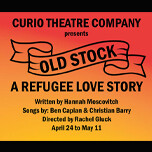 Though West Philadelphia has long been on the forefront of the Philadelphia food justice movement that aims to obtain what we eat from local sources and/or sources that pay the producers fairly, the same cannot be said for what West Philly folks read. In the past three years, West Philadelphians, especially the academic communities of the University of Pennsylvania and Drexel University that have traditionally supported local booksellers, have been steadily and increasingly turning away from them in favor of Amazon.com.
Though West Philadelphia has long been on the forefront of the Philadelphia food justice movement that aims to obtain what we eat from local sources and/or sources that pay the producers fairly, the same cannot be said for what West Philly folks read. In the past three years, West Philadelphians, especially the academic communities of the University of Pennsylvania and Drexel University that have traditionally supported local booksellers, have been steadily and increasingly turning away from them in favor of Amazon.com.
Obviously, we’re not alone. The national market for books has been utterly transformed since Amazon came onto the scene in 1996. According to 2011 research done by Albert Greco, a Fordham University marketing professor who studies book retailing, Amazon has 22.6% of the book market — ahead of Barnes & Noble (17.3%), Borders (8.1%), Books-A-Million (3%) and independents (6%) with the remainder of the market going to various other non-book based retailers including price clubs, supermarkets, and convenience stores.
Full disclosure: I work at a local independent West Philadelphia bookstore, Penn Book Center (not to be confused with the Barnes and Noble, Penn Bookstore). Thanks to Penn and Drexel professors who choose to stock their required course texts at an independent bookstore, each September and January the PBC fills up with student customers excited to purchase their coursebooks. But the store also fills up with other students squatting in the aisles with iPods, droids, laptops, or just pen and paper in hand, with no intention to purchase books, but rather to copy down the ISBN numbers so that they can go purchase the books on Amazon.
The explanation I hear most frequently from these students is that Amazon is simply cheaper, a huge factor especially for students who are demanded to buy large quantities of expensive textbooks. The explanation I hear most often from my friends and peers who opt for Amazon—young professionals who are book lovers of varying levels—is that Amazon is also convenient, allowing exceedingly busy people who can’t make it to a bookstore during business hours to shop efficiently.
The parallel to the local food movement raised at the beginning of this piece becomes relevant here: these are precisely the points of resistance that local food activists face in trying to create and nurture systems of connecting West Philadelphians with locally and fairly grown food. It may be faster, more convenient, and slightly cheaper to buy a burger at McDonalds on 40th & Walnut or Checkers on 48th & Lancaster than it is to buy the necessary component ingredients at Mariposa Food Co-Op (even when subbing tofu or veggie burger for beef), but a growing number of West Philadelphians would agree that it is “worth it” to do so. During my recent new member orientation at Mariposa, I got educated on the historical context of the move towards food cooperatives and the history of West Philly residents’ commitment to food justice. We talked about what it meant to be a co-op member and how it was an investment in the community of West Philadelphia.
Yet, when it comes to books, perhaps many of us know it’s vaguely bad to purchase them from the multinational corporation that is Amazon, but could any of us really articulate why it’s “worth it” to buy books locally?
Here are three big reasons:
1) Amazon is steadily and systematically driving down the cost (read value) of books, a trend that will dramatically affect what books publishers are able to offer us, as readers. Selling books at deeply discounted prices often means that Amazon itself is taking a loss on book sales, figuring it will recoup this money through the sales generated when that book customer becomes an electronics or music or clothing customer. Amazon recently declared they would sell all ebooks for $9.99 regardless of publisher’s costs, effectively setting a hard price ceiling. Says Teresa Nielsen Hayde, an editor at Tor Books (an imprint of Macmillan), this price fixing in print and ebook publishing has taken a “shark-sized bite out of the market for hot new bestsellers, which is trade book publishing’s single most profitable area. That revenue source is what keeps a lot of publishing companies afloat. It provides the liquidity that enables them to buy and publish smaller and less commercially secure titles: odd books, books by unknown writers, books with limited but enthusiastic audiences, et cetera.” The result, she says, is “fewer and less diverse titles overall, published less well than they are now.”
2) Spending money in our local Philadelphia community puts money back into our local economy. No, really. The owners of West Philadelphia bookstores, House of Our Own (Debbie Sanford), The Last Word (Larry Maltz), and Bindlestiffs (Alexis Buss) are all West Philadelphia residents. Penn Book Center owners Michael Rowe and Ashley Montague are Philadelphia residents who employ almost all West Philadelphia staff. Spending a dollar at one of these local stores means they will then spend that dollar at the hardware store, or the grocery store, or on rent to their West Philly landlords, meaning the money changes hands several times within our community before it leaves. A dollar spent at Amazon supports nothing but Amazon.
3) Our local stores can do everything Amazon can do, sometimes for not much more, sometimes for less. Want a good used book of a common title for a class? The Last Word is truly a used book mecca. Want a rare, out of print, or just a not commonly available title? Penn Book Center will order it for you. And just like produce can sometimes be cheaper at Mariposa than at Fresh Grocer (whereas cereal certainly is not), it’s worth thinking critically about the different types of books you’re looking for and where it makes sense to get them from. House of Our Own and Penn Book Center, as they operate on independent business models set by different people with different wisdom, are sometimes able to offer better deals on packaged coursebooks and/or commonly used paperbacks than is Amazon.
As of February 18th, 2012, Mariposa Food Co-op has 1,225 members and counting.
Imagine if 1,225 West Philadelphians joined together in intentional commitment to buying books from local vendors at fair market prices? Imagine what kind of statement that would make about us as a neighborhood, about us as an intellectual community that values the service that print publishing houses provide and the life-changing creative work that writers offer. That’s a community I’d like to live in.
– Emma Eisenberg







Recent Comments